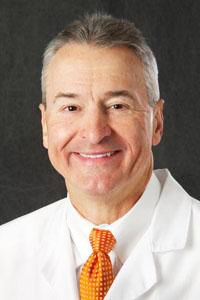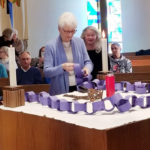By Dr. Mike Guidici
February is Heart Month! Being a cardiologist is great; we get all kinds of perks. We get our own month. We get Valentine’s Day. The heart of the matter. I give you my heart. Artichoke hearts … you name it! Nobody sings, “I left my pancreas in San Francisco.” It’s kind of cheating. If I were a kidney doctor, I’d think, “All we get is beans. It’s not fair!”
If you are like most people and you would prefer not to have heart disease, you have some options:

Option #1. Be born into a family that never gets heart disease. Done! Oops, maybe that didn’t happen. Ok then, let’s look at…
Option #2. Do what is possible with my lifestyle to minimize my risk of heart disease. Well, first we must know the risks. Let’s walk through them and see what can be done. The risk factors for coronary artery disease (CAD):
Hypertension, defined as a systolic blood pressure > 130 (top number) and a diastolic blood pressure > 85 (bottom number). High normal is up to 139/89. Grade I Hypertension is 140-159/90-99 and Grade II Hypertension is > 160/100. If my blood pressure is high, what can I do?
Well, if you’re in Iowa in February, you can go to Florida! Blood pressure is higher in cold weather and lower in warm weather (I’m not kidding!).
Other influences are many and you can do some research, but here are some suggested preventive measures: eat a diet high in certain vegetables that supply potassium, magnesium and calcium. Practice moderate consumption of coffee, black tea and green tea. Lower salt intake, stop smoking, exercise regularly, work at reducing stress and, if you are carrying extra pounds, reduce weight.
You can see how these all go together. If you eat healthier, quit smoking and exercise, you’ll lose weight and have less stress! One of the methods I’ve found interesting is to slow your breathing — look at the second hand of a clock and take long, slow breaths that last at least 10 seconds. Six or fewer breaths per minute can lower stress and blood pressure.
Diabetes. Diabetes is multifactorial and currently the trend is to avoid overtreatment. The goal is to keep fasting Glucose under 110 and the Hemoglobin A1C under 7.0. Diet, exercise and weight control are essential elements. If you’re on the border, seek dietary and/or medical advice.
Hyperlipidemia. Another complex topic! To simplify, you’d like your HDL cholesterol to be over 40, your LDL cholesterol to be under 100, and your total cholesterol to be under 200. Triglycerides (fasting) < 150. Diet and exercise can make a difference in your lipids, especially in the triglycerides. Changing your cholesterol levels may require medication as genetics play a big part in your lipid profile.
Cigarette smoking. Cigarette smoking is a factor in coronary disease, many cancers, stroke and peripheral vascular disease. It will harm you one way or another.
Family history of early coronary disease. This means men younger than 55 and women younger than 65. Not much you can do about that, but if you are in that group you need to be more aggressive about managing all the other risks.
Sedentary lifestyle. Probably a bigger risk than was thought 20 years ago. “Sitting is the new smoking.” It has been shown that heavy people who exercise have less risk than thin people who don’t. It’s referred to as “the obesity paradox.”
Exercise in some form is essential. Whether you walk, run, bicycle, do Zumba classes at the Y, lift weights, etc., just do something! At a minimum, exercise for 30 minutes on each of three to four days a week. Strength training is great, but remember to work the legs, too. Arm exercise puts a strain on your heart and leg exercise takes a strain off your heart is a good axiom to remember.
As Catholics, we are called to be stewards of our lives, our families and our world. Being a good steward of the body God gave us requires proper diet and regular exercise. As we approach Lent, we are reminded of more ways to be good stewards in our spiritual life such as regular confession, frequent Communion, Scripture study, prayer, eucharistic adoration and the family rosary. Watching “The Chosen” and Bishop (Robert) Barron videos counts, too!
To maintain a healthy heart, whatever you chose to do be it diet, exercise, weight loss, etc., find something that you will keep doing. If you make yourself miserable to lose 20 pounds, you’ll gain it right back.
Simple, sustainable small modifications make a difference over time such as one piece of toast instead of two, ham instead of sausage, black coffee instead of the flavored latte, hold the mayo, skip the snack or change it to something low-fat but palatable. You figure out what works for you. Same with exercise. Don’t make yourself miserable — make yourself happy! Find a walk, run, ride or workout that put a smile on your face and a song in your heart. Happy Heart Month!
(Michael C. Giudici MD is Emeritus Professor of Medicine at the University of Iowa and a graduate of St. Paul the Apostle Grade School and Assumption High School in Davenport.)











